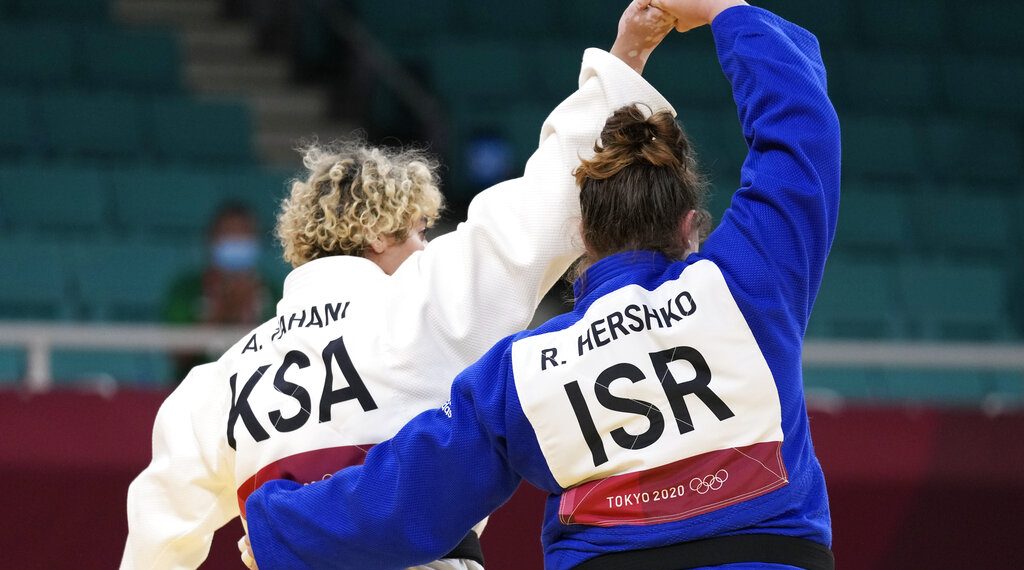
- ARAB NEWS
- 06 Jul 2025

Rebecca Anne Proctor
Dubai: Two female judokas, one mat, one Olympic contest. That the two athletes competing, Tahani Al-Qahtani and Raz Hershko, happened to be from Saudi Arabia and Israel, made the recent first round of the women’s judo 78-kilogram-class meeting at Tokyo 2020 more than just an ordinary bout.
The two countries have no formal relations and no history of sporting competition to speak of. Furthermore, regional politics and boycotts movements have made it a norm that Arab athletes refuse to take part in any match opposite an Israeli counterpart in fear that this might be interpreted as a form of recognition.
This is why, in an exclusive interview with Arab News, Israeli judoka Hershko had made it a point to praise the bravery of Al-Qahtani. Not only did the Saudi judoka defy popular calls by hatemongers to boycott the match, but she participated knowing very well that Hershko has far more international experience and was clearly the likely winner.
The 23-year-old Israeli said: “I think it is amazing that we both put politics aside to do something we love. I was super excited that anything can happen at the Olympics.
“I knew it was rare for an (Arab) to accept to fight like this, but I was so excited when she accepted. Both of us put politics to the side and did what we loved together in the match.”
Algerian Fethi Nourine and Sudan’s Mohammed Abdalrasool had withdrawn from the judo men’s plus-73-kg competition rather than face the possibility of taking on an Israeli athlete. But Al-Qahtani chose to compete against Hershko, a decision that drew praise from Japanese media and prompted a wave of support from high-profile figures and sports fans in Saudi Arabia.
Al-Qahtani was the last of the Kingdom’s 33 athletes to confirm her place at Tokyo 2020, her wild card selection making her only the second female judoka from the country to participate in the Olympics since the 2012 London Games.
The two women had walked out side-by-side onto the mat ahead of what turned out to be a tough match for the inexperienced 22-year-old Saudi. As the fight progressed, Hershko racked up the points, eventually beating Al-Qahtani 11-0.
“It was a tough fight in the beginning. She (Al-Qahtani) was brave to take on the fight despite pressure from hatemongers about her decision to fight me,” Hershko added.
The victor pointed out that she and Al-Qahtani were simply human beings, females from different countries, playing in a match. “I don’t think it was different from fighting someone from the US or South Africa. It was great that Al-Qahtani bravely accepted and let politics stay out of the picture.”
After Al-Qahtani’s loss, some questioned whether the pressure of the situation had affected her performance.
While Al-Qahtani was not available for comment, Hershko noted the importance of the match and how sport could be a uniting force at a time when politics in the Middle East continued to be a hot topic, even after several countries had normalized relations with Israel.
“Politics has nothing to do with it, it was a good match,” said Hershko.
In a statement after the bout, the International Judo Federation said:
“This game shows that sports can transcend political and external influences.”
Al-Qahtani’s courageous performance on and off the judo mat demonstrated a notable shift in Saudi Arabia, and an openness to rise above current geopolitics in the realm of sports and culture, both avenues that could bring people from opposing nations together.
On whether she would accept an invitation to compete in Saudi Arabia, Hershko said: “Of course, why not?”